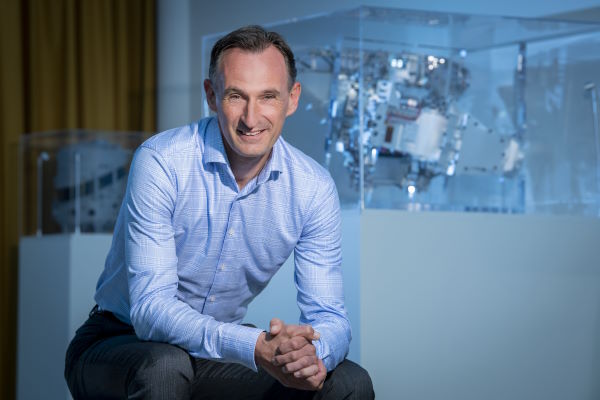
“The Netherlands needs to conquer more key positions in value chains”
Photondelta (471 million euros), Nxtgen Hightech (450 million euros), Quantum Delta NL (615 million euros) and several other projects: The Netherlands is investing heavily in the high-tech industry through the National Growth Fund. But by 2025 all the money will have been distributed and by 2030 it will have run out. That’s ill-advised, says Arnaud de Jong, managing director of TNO High Tech Industry. He argues for a permanent successor to the Growth Fund. “It would be a shame if our investments boil dry.”
“In the Netherlands, we generally focus on high-complexity. That kind of technology thrives on long-term investment. If you start something new every five years, very little will get off the ground. ASML would not exist today. The Brainport region relies to a large extent on technology that has been invested in year in and year out: mechatronics, optics, thin film technology, semiconductors, you name it,” says De Jong.
The research underlying existing and emerging Dutch specialties such as integrated photonics and quantum technology deserves ongoing government support, TNO argues in a white paper. This structural funding mechanism must go hand in hand with a National High-Tech Strategy (NHS) to tie in with key trends such as sustainability and fragmentation of global markets.
Based on discussions with entrepreneurs, experts and policy makers, TNO expects that by 2040 the Dutch high-tech sector will generate more than half of its revenue in new value chains. “Every company has to ask itself: what do I have to do to still exist in ten, twenty years? What are my opportunities and what are threats?” says De Jong. A long-term strategy supported by knowledge institutions and government will help companies to make the necessary course changes. “The value chains that we currently focus on are going to change, and new ones are emerging.”

Teeth
The NHS serves not only economic but national-strategic interests as well. “To be strong, our country needs to occupy a key position in several value chains. We must have the ambition to produce a handful of new ASMLs. By that I don’t necessarily mean companies the size of ASML, but companies that no company or country can ignore in a particular industry.” In other words, with companies like ASML, others will need to depend on us, just as we might depend on them for other technologies. This mutual dependence is healthy.
But why subsidies? Why not simply increase the R&D tax incentives and let the market do the rest. “Those tax incentives are extremely useful, but I am convinced those won’t help create future control points in value chains. These require long-term investments that most companies can’t make on their own.”
“As for market forces, don’t forget that companies also have skin in the game. Half of the funding for Growth Fund projects comes from the participants themselves. In a country like the Netherlands, where subsidies are heavily scrutinized, I am not afraid of money endlessly being pumped unnecessarily into projects that don’t work out. Failure is and should be an option: not everything we sink our teeth into will turn to gold.”






